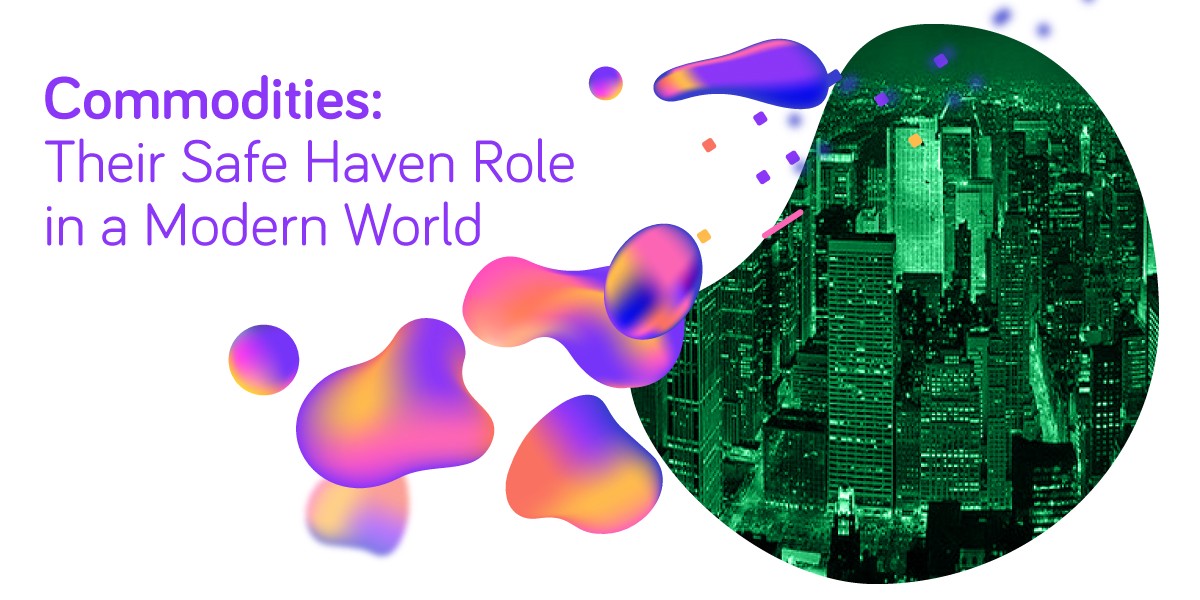Commodities are common goods used in commerce, interchangeable with other goods of the same kind. In today’s economy, a commodity represents an economic good, usually a resource, that’s entirely or partially fungible: meaning that a given quantity of a commodity is the equivalent to that same quantity of the same commodity, no matter who produced it or what its origin is. Some classic examples of such commodities are gold, oil, and natural gas.
How Are Commodities Traded?
Commodities trading has a more extended history than equity or bond trading, existing since ancient times, when bartering was the primary payment method, even before coins were used. As a result, we can directly correlate the transaction power of commodities with the rise of many empires and the increase of their commercial capacity. In these modern times, when cryptocurrencies or non-fungible tokens (NFTs) and the value of paintings and collectible pieces grows significantly, traditional commodities like Oil and Gold are still traded worldwide because these are considered safe havens. However, such commodities always step into the spotlight when there is a crisis going on — or political and economic uncertainty — such as the Ukraine-Russia situation.
Traditionally, when the equity market goes down, safe havens are growing in price or at least remain unchanged — thus forming a sure way for big investors to protect their large sums of money.
The commodity market is very efficient, especially if grouping them fits the demand sector, and will rapidly respond to market-changing behavior to find an equilibrium between price and supply.
For example, pension funds allocate massive capital to the commodity market and its infrastructure to diversify and reduce the risk associated with inflation.
Some Commodities and their Unique Characteristics
Precious Metals: Gold, Silver, Platinum, Copper.
In high volatility periods and bear markets, investors typically decide to hold significant portions of their wealth in precious metals because their price is dictated by the market’s supply and demand, especially their credibility status, having a physical value.
Energy: Oil, Natural Gas.
Oil — on which we rely so much nowadays, from plastic production to fuel used by cars and planes — has risen in price due to its growing global scarcity.
Agriculture: Corn, Grain, Cocoa, Sugar.
This type of commodity is less traded than the above. At the same time, these goods’ prices are volatile since their production depends on the season, weather, transition periods. Agricultural supply for commodities like coffee and wine becomes limited as the population grows at the same pace as the price.
The Pros and Cons of Commodity Trading
As mentioned above, the main reason for investing in commodities is protecting money from inflation. In addition, the liquidity that commodities offer is a considerable advantage because reserves held in commodities with a base value can be traded in the real world in emergencies — that’s why they’re called safe-havens.
In geopolitical scenarios, such as conflict and war, the supply chain is affected, leading to a lack of resources because procurement of raw materials becomes difficult.
New investors who want to get into the commodity market should be aware of changes in the world when they’re buying. In addition, keep in mind that external factors influence the price of such an asset. For example, in 2020, when the pandemic began, and many countries had to lockdown, oil prices tanked to historical lows. Even if some commodities are considered safe havens, the world is continuously changing, and some assets may suffer a tremendous impact. Under such circumstances, they might be unforeseeable, being affected by risky instances we can’t predict. Another disadvantage consists of low returns that commodities provide: even if these exceed inflation, they’re still lower than equity and other asset types.
So we have to keep the following question in mind: What do we expect from commodities? Stability or profit?
Are Cryptocurrencies Commodities?
It depends on the cryptocurrency type. Many of them have no intrinsic value, but Bitcoin and Ethereum are considered commodities on a larger scale by the Commodity Futures Trading Commission (CFTC) and the Securities and Exchange Commission (SEC). Crypto commodities are fungible assets that represent goods, services, or a contract in the real world, using exclusive tokens registered on a blockchain. For example, Tether Gold and Paxos Gold are cryptocurrencies that track the value of gold. These digital tokens are tradeable, and each unit represents one ounce of gold in its physical form. Such tokens can’t be stolen, and they’re fungible, giving them better liquidity.
If you’re thinking of safeguarding your funds through investing in commodities, cryptocurrencies might be a suitable solution for you. Register on Your Friendly Crypto Exchange and find out what a secure, simple and complete trading platform looks like.
Disclaimer: The content of this article is not investment advice and does not constitute an offer or solicitation to offer or recommendation of any investment product. It is for general purposes only and does not take into account your individual needs, investment objectives and specific financial and fiscal circumstances.
Although the material contained in this article was prepared based on information from public and private sources that IXFI believes to be reliable, no representation, warranty or undertaking, stated or implied, is given as to the accuracy of the information contained herein, and IXFI expressly disclaims any liability for the accuracy and completeness of the information contained in this article.
Investment involves risk; any ideas or strategies discussed herein should therefore not be undertaken by any individual without prior consultation with a financial professional for the purpose of assessing whether the ideas or strategies that are discussed are suitable to you based on your own personal financial and fiscal objectives, needs and risk tolerance. IXFI expressly disclaims any liability or loss incurred by any person who acts on the information, ideas or strategies discussed herein.


